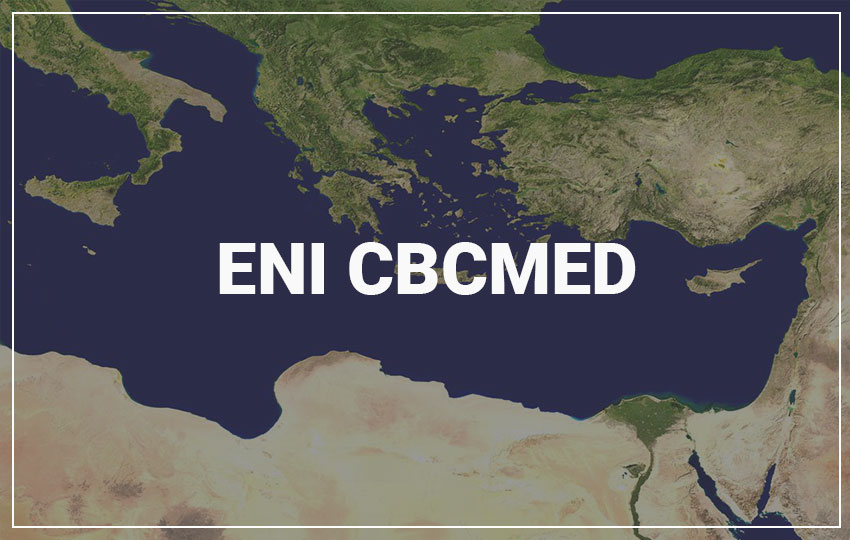One of the most influential European Programmes, with a significant impact on society, is the ENI CBC MED programme. It is a multilateral cross-border cooperation programme co-financed by the European Union under the European Neighbourhood Instrument (ENI).
Under the programme’s framework, participants will aim at developing areas of peace, stability, prosperity and good neighborliness, involving EU Mediterranean Countries and Mediterranean Partner Countries.
To participate in the programme and implement a proposal, all applicants are advised to follow the following documents:
- ENI Regulation (EC) No 232/2014 of the European Parliament and of the Council 11 March 2014 establishing a European Neighbourhood Instrument;
- ENI CBC Implementing Rules (Regulation (EC) No 897/2014) of 18 August 2014 laying down specific provisions for the implementation of cross-border cooperation programmes financed under Regulation (EU) No 232/2014 of the European Parliament and the Council establishing a European Neighbourhood Instrument;
- ENI CBC Mediterranean Sea Basin Joint Operational Programme approved by the European Commission on 17/12/2015 (Decision No. C(2015) 9133) and related annexes;
- Strategic Environmental Assessment for the ENI CBC Mediterranean Sea Basin Joint Operational
All these documents can be consulted on the Programme website (www.enicbcmed.eu).
As an aspiring partner, wanting to be part of this programme, you need to find the right partners and build an excellent consortium. To find the right partners, you need to focus on the main priorities of the programme itself.
Following the decision of the Joint Monitoring Committee, this call for strategic projects addresses
the seven (7) thematic Priorities.
A proposal shall refer to one Priority only. The priorities under the thematics are the following:
Thematic: Business and SMEs development.
Priority 1: Support innovative start-up
and recently established enterprises.
Priority 2: Strengthen and support
euro-Mediterranean networks, clusters, consortia, and value chains in traditional sectors and non-traditional sectors.
Thematic: Support for education, research, technological development, and innovation.
Priority: Support technological transfer and commercialization of
research results
Thematic: Promotion of social inclusion and the fight against
poverty.
Priority: Provide young people, especially those belonging to the NEETS, and women, with marketable skills.
Thematic: Environmental protection, climate change adaptation, and mitigation.
Priority 1: Water management – Support sustainable initiatives targeting innovative and technological solutions to increase water efficiency.
Priority 2: Waste treatment and recycling – Reduce municipal waste generation, promote source-separated collection and its optimal exploitation.
Priority 3: Renewable energy and energy efficiency – Support cost-effective
and innovative energy rehabilitations relevant to building types and climatic
zones, with a focus on public buildings.
Building the right consortium of partners plays an essential role in implementing a project under the ENI programme. The partners need to be aware of the importance of the impact the programme aims to achieve. As a result, when looking for the right partners, one must focus on finding organizations that already have achieved an essential impact through their own.
Over the past 14 years, the Institute of Entrepreneurship Development has implemented a plethora of different projects. Each project has had a major impact on its field. We have worked tirelessly to achieve the best results, focusing on some of the most important sectors that affect society on a daily basis.
Our work on the Social inclusion gap for vulnerable groups
Social inclusion is at the heart of iED’s commitment, to build a strong, social Europe. The economic recovery and growth, we are slowly starting to witness across Europe, need to reach everybody, including the most disadvantaged of our citizens. Although the EU is far from reaching this goal, in IED we are proud to have taken part in EU projects that promote social inclusion and connect it with entrepreneurship. Vulnerable groups such as refugees, immigrants and people with disabilities are supported through activities that integrate them into society.
Some of our most valuable Social Inclusion projects:
- PAL: Fighting discrimination and anti-Gypsyism in education and employment in the EU
- Sentim: Social Entrepreneurship for Immigrants
- CEDIWORES: Certification of disadvantaged women in remote areas
Our action for supporting SMEs and local markets
The Institute of Entrepreneurship Development has implemented 18 European projects focusing on the growth of SMEs, on a national and European level. We have developed methodologies and processes aiming to boost the business skills of the workforce and the managers. We help SMEs to get familiar with the available funding.
Some of our most valuable SME support projects:
- Innohabits: Building a Regional Habitat for Learning and Innovative SMEs
- SERFA: Services for Apprenticeships
- Grow your Raw and Sustainable Organic Enterprise
Our actions for promoting the European Startup Ecosystem
Over the last 14 years, iED has implemented 20 EU projects, which build bridges between the startuppers within European ecosystems. For these projects we worked directly with more than 400 startups, bringing them together with investors, accelerators, incubators, entrepreneurs, corporate networks, universities, and the media. These kinds of activities provide a strong foundation for the structured and effective growth of European startups and entrepreneurs.
See some of our most valuable projects that promote the Startup Ecosystem:
- Entrepreneurship is a woman
- StartUp Academy: Developing International Innovation Acceleration and Supporting Environment for potential young Startuppers
- T3QM: The Three Question Model
We want our work here at IED to have a strong impact on society. We recognize the need for change in various fields to promote more small businesses, eliminate discrimination and we aim at developing areas of peace, stability, prosperity and good neighborliness.

